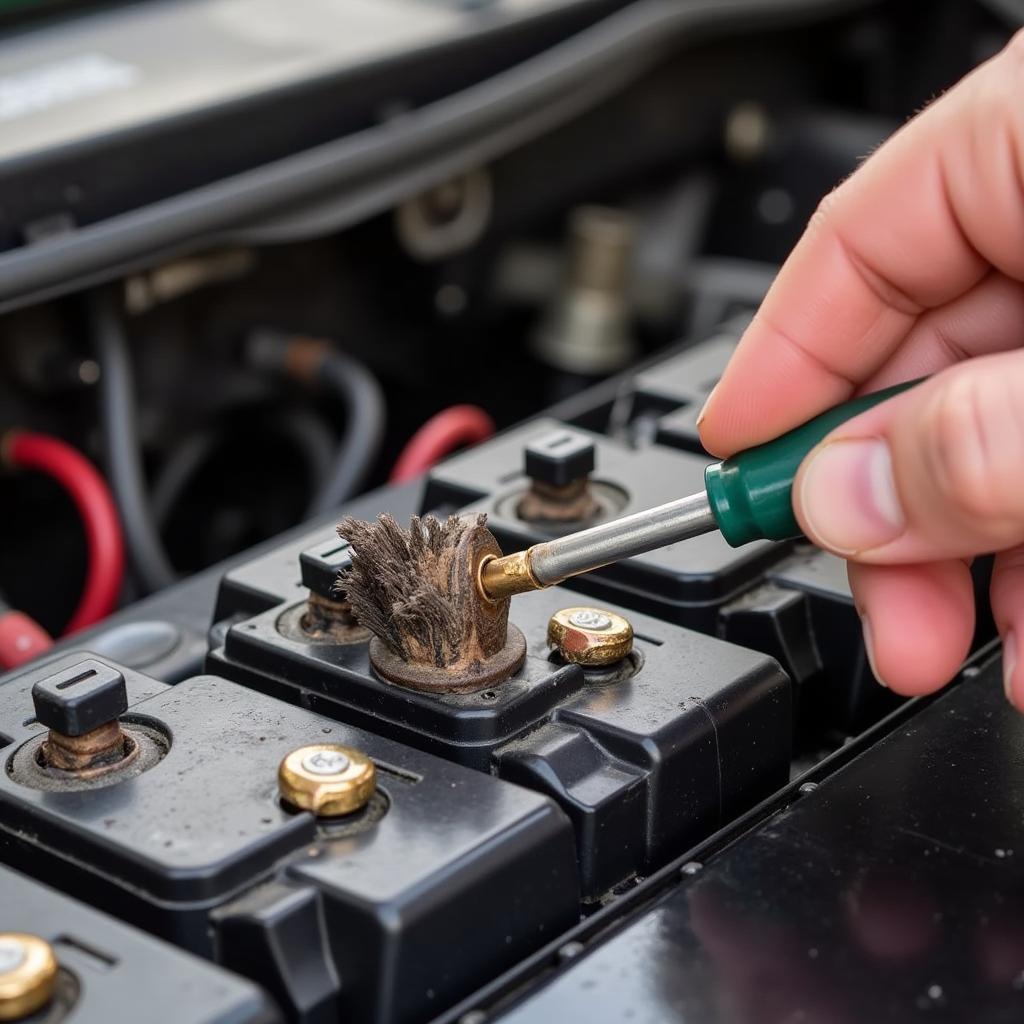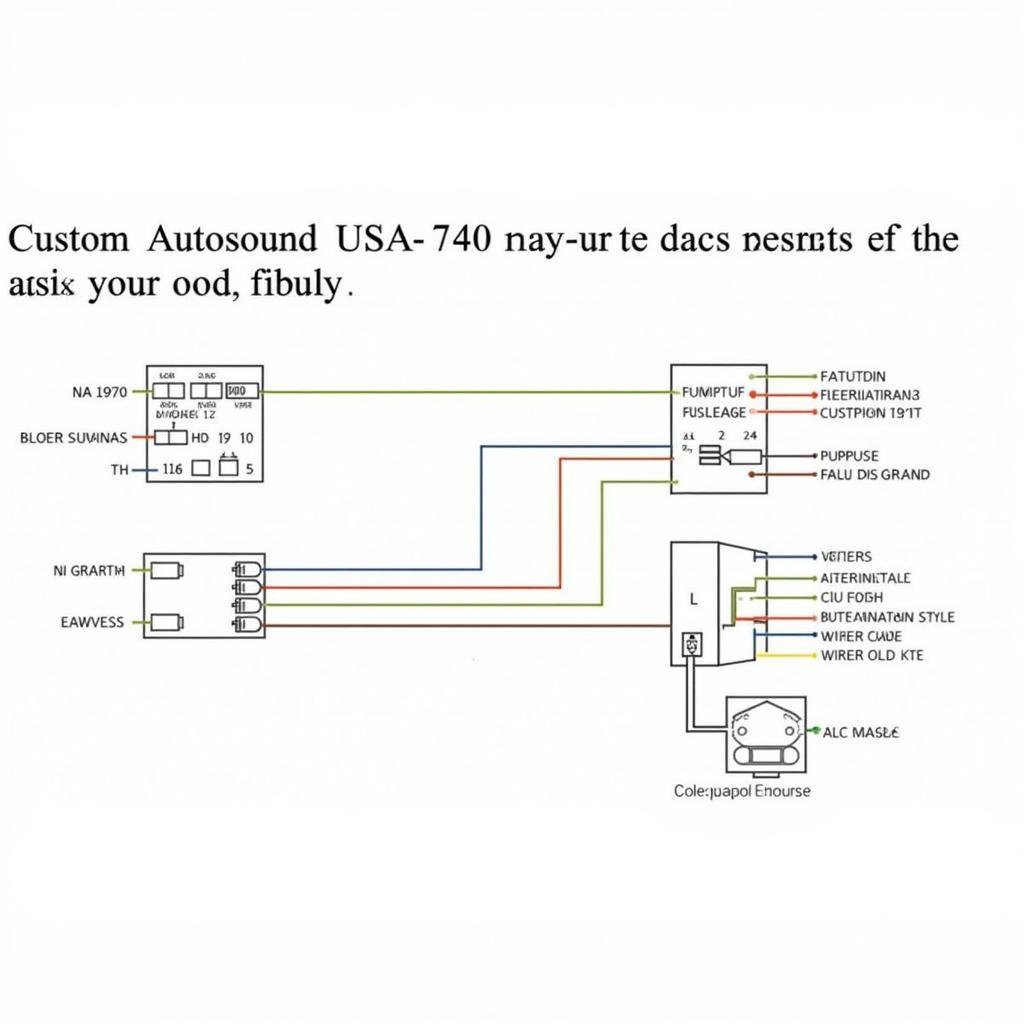The 2008 Toyota Camry brake warning light can illuminate for various reasons, ranging from low brake fluid to serious issues with the braking system. Understanding why this light comes on is crucial for maintaining your vehicle’s safety and preventing costly repairs. This comprehensive guide will walk you through the common causes, troubleshooting steps, and potential solutions for a 2008 Toyota Camry brake warning light.
Common Causes of a 2008 Toyota Camry Brake Warning Light
Several factors can trigger the brake warning light in your 2008 Toyota Camry. Identifying the root cause is the first step towards resolving the issue. These are some of the most frequent culprits:
- Low Brake Fluid: This is the most common reason for the warning light. A leak in the brake lines or worn brake pads can cause the fluid level to drop.
- Worn Brake Pads: As your brake pads wear down, the brake fluid reservoir level decreases. The warning light often signals that it’s time for a brake pad replacement.
- Faulty Brake Sensor: Your Camry has sensors that monitor the brake pad thickness. A malfunctioning sensor can trigger the warning light even if your brake pads are in good condition.
- Parking Brake Engaged: Sometimes, the simplest explanation is the right one. Make sure your parking brake is fully released.
- ABS Issue: While less common, a problem with the Anti-lock Braking System (ABS) can also illuminate the brake warning light. This usually requires professional diagnostics.
- Master Cylinder Problems: The master cylinder is a crucial component of the braking system. A leak or internal failure in the master cylinder can cause the brake warning light to come on.
After this paragraph, we will delve into the diagnostic process for your 2008 Toyota Camry brake warning light. brake pad warning light vw passat This link provides some insightful information on a similar issue in another vehicle, which can be helpful for context.
Diagnosing Your 2008 Toyota Camry Brake Warning Light
Before rushing to a mechanic, you can perform some basic checks yourself.
Checking the Brake Fluid Level
First, locate the brake fluid reservoir under the hood. Check the fluid level against the “MIN” and “MAX” markings. If it’s low, add the correct type of brake fluid. However, simply adding fluid isn’t a fix; it’s essential to identify the underlying cause of the low level.
Inspecting the Brake Pads
Next, visually inspect your brake pads. Look for significant wear. If they appear thin, it’s likely time for a replacement.
Checking the Parking Brake
Ensure the parking brake is fully disengaged. Sometimes, a partially engaged parking brake can trigger the warning light.
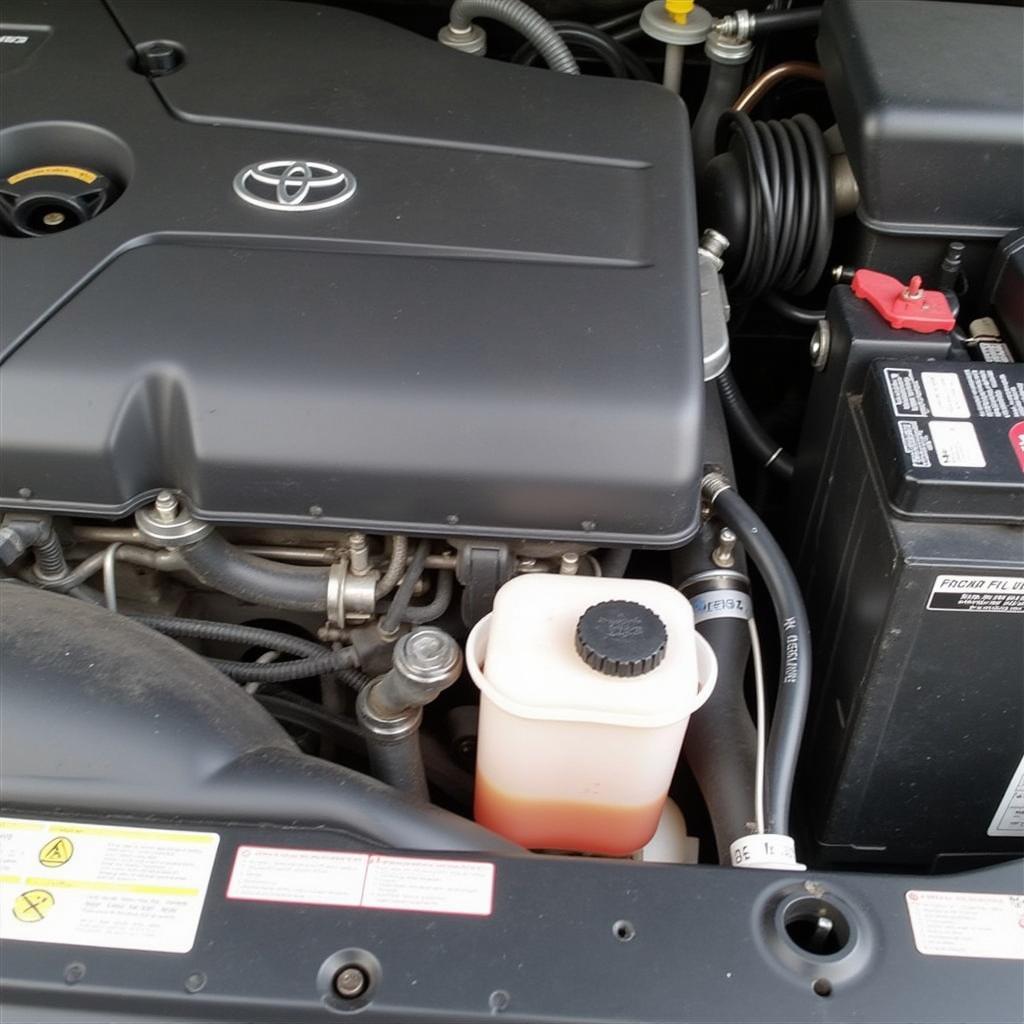 2008 Toyota Camry Brake Fluid Reservoir Location and Level Check
2008 Toyota Camry Brake Fluid Reservoir Location and Level Check
When to Seek Professional Help
If you’ve checked the basics and the light remains on, it’s time to consult a qualified mechanic. They have the diagnostic tools and expertise to pinpoint the problem accurately. This is particularly crucial if you suspect an ABS or master cylinder issue.
Solving the Brake Warning Light Problem
The solution depends on the diagnosed cause. Here are some common fixes:
- Adding Brake Fluid: If the fluid is low, add the correct type. However, remember to identify and address the underlying cause of the leak.
- Replacing Brake Pads: Worn brake pads need to be replaced promptly. This will usually resolve the warning light issue.
- Replacing the Brake Sensor: A faulty sensor needs to be replaced. This is a relatively simple procedure for a mechanic.
- Repairing or Replacing the Master Cylinder: A leaking or malfunctioning master cylinder requires professional repair or replacement.
- Addressing ABS Issues: ABS problems require specialized diagnostic equipment and expertise. A mechanic can pinpoint and resolve the specific ABS fault.
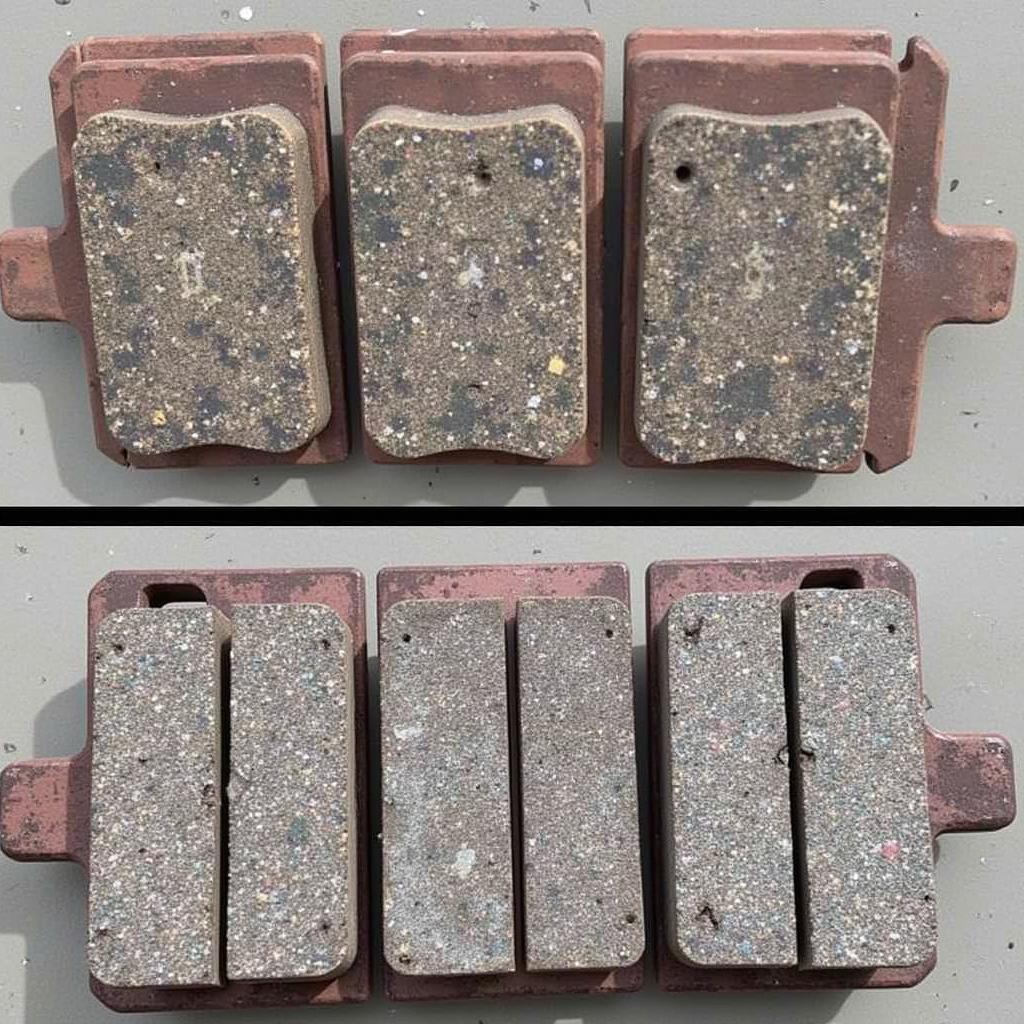 Worn Brake Pads on a 2008 Toyota Camry
Worn Brake Pads on a 2008 Toyota Camry
Why is my brake warning light flashing?
A flashing brake warning light usually indicates a more serious problem, often related to the ABS system. It’s crucial to have this checked by a professional immediately.
Can I drive with the brake warning light on?
While you might be able to drive short distances, it’s highly discouraged. The brake warning light indicates a potential safety hazard, and driving with it on can put you and others at risk.
“Ignoring a brake warning light can lead to catastrophic brake failure,” warns John Smith, a seasoned automotive technician with over 20 years of experience. “It’s always best to err on the side of caution and have a professional diagnose the issue.”
Conclusion
The 2008 Toyota Camry brake warning light serves as an essential safety indicator. Understanding its potential causes and taking appropriate action can prevent serious braking problems. While some checks can be performed at home, consulting a qualified mechanic is crucial for accurate diagnosis and effective solutions. Addressing the issue promptly ensures your safety and prevents costly repairs down the line. Don’t ignore this vital warning – your safety depends on it.
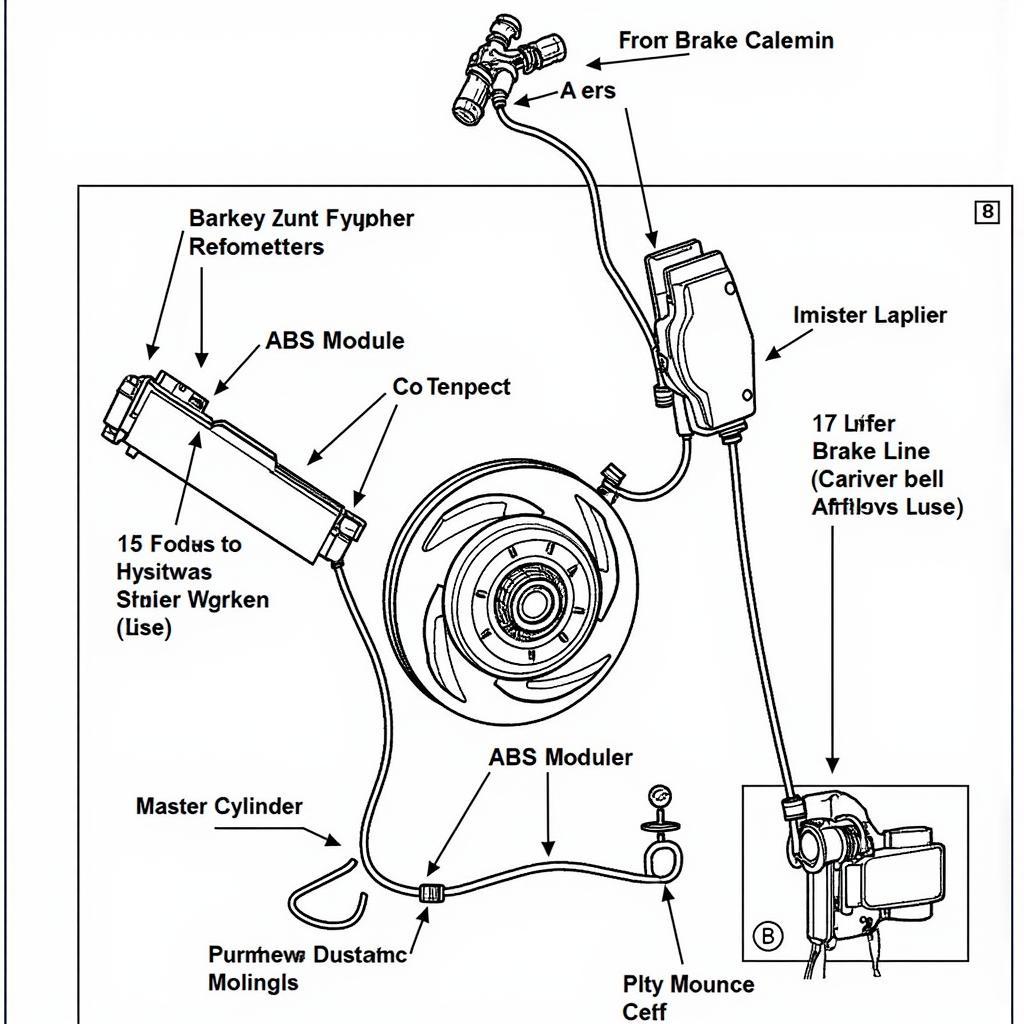 2008 Toyota Camry Brake System Diagram
2008 Toyota Camry Brake System Diagram
FAQ
-
What does a solid brake warning light mean? A solid light usually indicates low brake fluid or worn brake pads.
-
What does a flashing brake warning light mean? A flashing light often signifies a more serious issue, potentially related to the ABS system.
-
Is it safe to drive with the brake warning light on? No, driving with the brake warning light on is unsafe and can lead to brake failure.
-
How often should I check my brake fluid level? It’s recommended to check your brake fluid level at least once a month.
-
How much does it cost to replace brake pads? The cost varies depending on the type of brake pads and labor rates, but it typically ranges from $150 to $300 per axle.
-
How long do brake pads last? Brake pad lifespan varies based on driving habits and conditions, typically lasting between 25,000 and 70,000 miles.
-
Can I replace brake pads myself? While possible, replacing brake pads requires some mechanical knowledge and tools. It’s often best to leave this task to a qualified mechanic.

